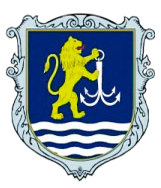RESEARCH OF WAYS TO REDUCE AIR POLLUTION FROM SHIPPING
Abstract
The article considers modern problems of air pollution prevention during ship operation. These problems are caused by the fact that carbon dioxide emissions contribute to global warming, and sulphur oxide and nitrogen oxide gases are rapidly transformed into acidic substances that affect the chemical composition of sea, surface water and soil, which has consequences for organisms inhabiting acidified water. All physiological and enzymatic processes are sensitive to the hydrogen index and can therefore have a major impact, for example on the growth of microorganisms, but also on larger animals, for example by affecting the senses and olfactory organs of living organisms. Currently, national and international environmental regulations define the need to improve the state of the environment. The analysis of previous studies and publications shows that the issues of determining the optimal way to prevent air pollution during ship operation have not been given due attention. Taking into account the forecasted expectation of an increase in global maritime traffic by about 3 % per year from 2021 to 2030 due to economic growth and the promotion of maritime transport, this forecast creates the need to analyze and apply effective means of preventing air pollution. The purpose of the article is to analyze the dynamics of air pollution from shipping and determine the best way to prevent air pollution during ship operation. As well as analysis of the regulatory framework governing the prevention of air pollution and analysis of existing ways to prevent air pollution during ship operation. Results. Measures are proposed and recommendations are given for choosing the best way to prevent air pollution during ship operation. Conclusions. Thus, the problems of preventing air pollution during ship operation should be solved in a complex, considering the fact that the most effective, less costly, such that do not require significant modernization of the ship itself, are the following ways to prevent air pollution: exhaust gas purification, recycling, fuel pretreatment and the use of water-fuel emulsions
Downloads
References
2. Silveira RS, Corrêa SM, de M Neto N. Possible influence of shipping emissions on metals in size-segregated particulate matter in Guanabara Bay (Rio de Janeiro, Brazil). Environ Monit Assess. 2022 Sep 26;194(11):828. doi: 10.1007/s10661-022-10517-7. PMID: 36156154; PMCID: PMC9510154.
3. Anindita Mandal et al. A detailed perspective of marine emissions and their environmental impact in a representative Indian port, Atmospheric Pollution Research, Volume 12, Issue 10, 2021, 101194, ISSN 1309-1042, https://doi.org/10.1016/j.apr.2021.101194.
4. Herdzik, J. Decarbonization of Marine Fuels — The Future of Shipping. Energies 2021, 14, 4311. https://doi.org/10.3390/en14144311
5. Emissions Gap Report. 2018 // UN Environment. Emissions Gap Report. URL: https://www.unep.org/resources/emissions-gap-report-2018
6. The UNCTAD Handbook of Statistics. Geneva,2019. URL: https://unctad.org/webflyer/handbook-statistics-2019
7. Golovan A et al. 2020 Aspects of remote monitoring of the transport vessel under operating conditions. ICTE in Transportation and Logistics 2019 pp 295-301 https://doi.org/10.1007/978-3-030-39688-6_37
8. Sendai Framework for Disaster Risk Reduction, 2015-2030. URL: https://www.undrr.org/publication/sendai-framework-disaster-riskreduction-2015-2030
9. Golovan A, Rudenko S, Gritsuk I and Shakhov A 2018 Improving the process of vehicle units diagnosis by applying harmonic analysis to the processing of discrete signals SAE Technical Paper 2018-01-1774 https://doi.org/10.4271/2018-01-1774
10. Golovan A et al. 2020 Features of mathematical modeling in the problems of determining the power of a turbocharged engine according to the characteristics of the turbocharger SAE Int. J. Engines 13(1) 5-16 https://doi.org/10.4271/03-13-01-0001





